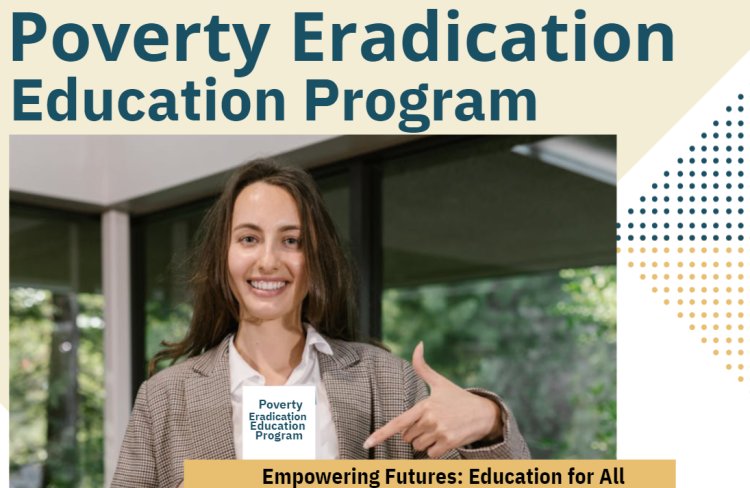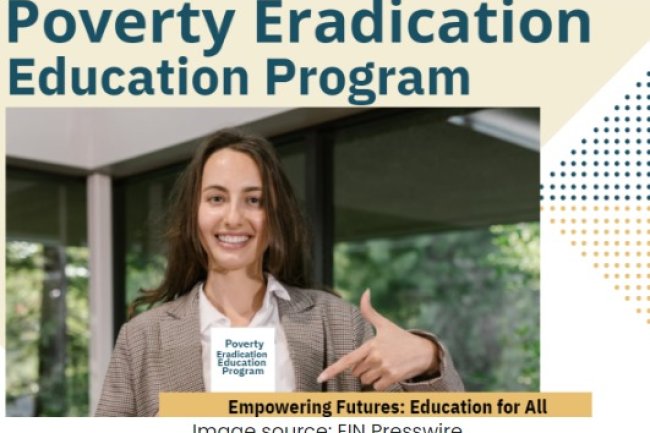Poverty Eradication Education Program
In a world where poverty remains a pressing issue, innovative educational programs are essential to empower the next generation. The Poverty Eradication Education Program (PEEP) aims to equip high school and tertiary students with the skills and knowledge necessary to combat poverty through entrepreneurship, trade, and community engagement. This program, spearheaded by the World Subnationals Education Agency (WSEA), offers a comprehensive 12-week curriculum designed to foster a mindset of innovation and resilience.

Program Overview
PEEP for high school students focuses on understanding local and international trade, industrialization, and entrepreneurship. By using local businesses as case studies, the program provides students with practical skills to drive economic growth and tackle poverty in their communities.
The program's objectives include:
- Empowerment and Mindset: Instilling a growth mindset that emphasizes innovation and resilience.
- Skill Development: Teaching financial literacy and entrepreneurial skills.
- Practical Learning: Utilizing local businesses as real-world examples.
- Global Perspective: Understanding the impact of international trade on local economies.
The program is structured into weekly sessions that last 90 minutes, engaging students aged 13-18 in interactive learning.
Weekly Breakdown for High School Students
-
Week 1: Understanding Poverty and Its Impact: Students examine poverty statistics and personal stories to understand its effects on education, health, and opportunity.
-
Week 2: Cultivating a Growth Mindset: Through resilience exercises, students reflect on personal growth experiences and set goals to overcome challenges.
-
Week 3: Financial Literacy Essentials: Students participate in workshops focused on budgeting and saving, culminating in an analysis of their own spending habits.
-
Week 4: Introduction to Local and International Trade: This session introduces the basics of trade, complemented by case studies of successful local businesses.
-
Week 5: Entrepreneurship and Local Business Development: Students develop a business plan based on local needs and interview local entrepreneurs.
-
Week 6: Industrialization and Economic Growth: Discussions revolve around the impact of industrialization on local economies, encouraging students to analyze local industries.
-
Week 7: Social Entrepreneurship and Impact: Students learn about social entrepreneurship and propose ideas that could benefit their communities.
-
Week 8: Advocacy and Leadership Skills: Focused on effective communication, students simulate community meetings to discuss local business issues.
-
Week 9: Sustainability in Business: Discussions cover sustainable practices, prompting students to brainstorm ideas for promoting sustainability in their communities.
-
Week 10: Global Perspectives on Trade: Students research international trade agreements and their implications for local businesses.
-
Week 11: Capstone Project Development: Students work on a comprehensive business proposal integrating their learnings from the program.
-
Week 12: Capstone Showcase and Reflection: A showcase event allows students to present their projects to peers and community members, reflecting on how they can apply their learnings in the future.
Assessment and Community Involvement
The program emphasizes feedback from students and community members, evaluating projects based on creativity, feasibility, and community relevance. Recognition awards are presented for outstanding projects, encouraging innovation and engagement.
Community involvement is integral to the program's success. Local businesses, NGOs, and governmental organizations are invited to collaborate, offering mentorship and resources to students. This inclusivity ensures that the program can be adapted to meet specific community needs, enhancing its impact.
A Broader Approach for Tertiary Institutions
Recognizing the importance of education at all levels, WSEA has also developed a similar program for tertiary institutions, focusing on entrepreneurship, trade, and community engagement for students aged 18 and older. This program builds on the foundations laid in high school, encouraging deeper exploration of topics like social entrepreneurship, sustainable business practices, and technology's role in poverty reduction.
By promoting critical thinking and innovative solutions, the tertiary program prepares students to actively participate in their communities and address global poverty issues.
Conclusion
The Poverty Eradication Education Program is a vital initiative that prepares young people to engage in meaningful economic activities. Through fostering an understanding of local and international trade, industrialization, and entrepreneurship, students gain practical knowledge and skills that empower them to contribute to economic growth and work towards eradicating poverty.
As WSEA continues to champion educational efforts worldwide, programs like PEEP stand as a testament to the transformative power of education, nurturing the next generation of leaders, as we move closer to a future where poverty is a relic of the past and replaced with opportunities for all.


















